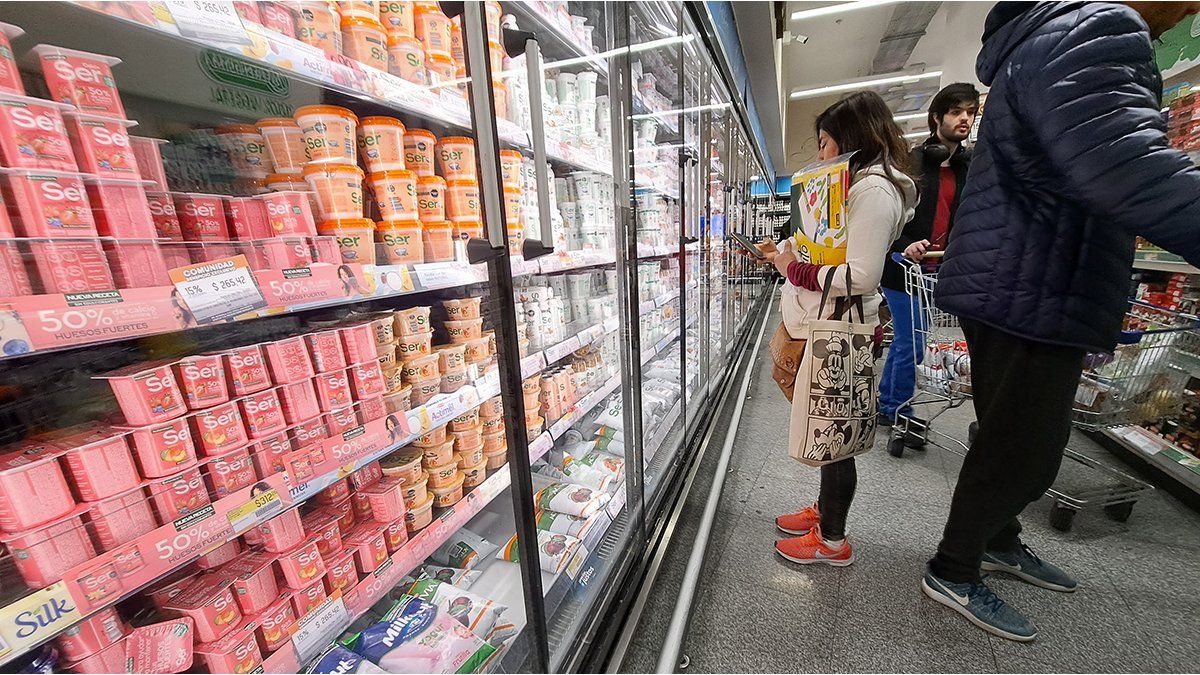The private consultants estimate one inflation around 11% for Augustproduct of the impact of the devaluation in the prices and political uncertainty after the PASSED. The acceleration of the CPI, which occurred mainly in the second half of the month, left a high floor for september. Thus, analysts already anticipate that this month, as a result of the “drag effect”, inflation could return to around double digits. And, although the measures adopted by the Government could contain part of the increases, in the future they warn for other factors that will add pressure to prices.
By case, as summarized by the consultant C&T, “Prices had already been showing an acceleration since the second half of July, but there was an additional change in dynamics after the jump in all exchange rates on August 14.” “This meant that, comparing the last week of the month against the same week of July, an increase of 14.7% was verified, much higher than the average data for the month, and that leaves a drag of 5% for September,” they explained from the signature.
“For September we expect a second month with double-digit monthly inflation,” they summarized for their part from Ecolatina, and they detailed: “The drag of the second fortnight resulting from the shock that meant the surprise result of the PASO, together with a high pass-through of the recent discreet jump in the official exchange rate and the worsening of the uncertainty that this change in price brought about. scenario, will imply that the dynamics of price increases remain high and unstable”.
In this sense, from the consultant they indicated that “the upward risks are many, taking into account an inertia that is consolidated in higher floors, the instability generated by the absence of anchors, the shortage of foreign currency, the non-existence of a comprehensive plan to lower inflation, the distortion of relative prices and the lack of confidence of the Government to coordinate expectations in the midst of the uncertainty generated by the current electoral landscape”.
“For these reasons, beyond some moderation in the records of the second half of September, we estimate an inflation floor of 160% for 2023, subject to the evolution of political and economic events in the coming weeks,” they highlighted from Ecolatina.
For his part, Eugenio Marí, chief economist at the Freedom and Progress Foundationhe assured: “For September, our projections are that the CPI will be in the range of 8.5% to 10.0%, marking the second consecutive month in which the index will be around double digits in monthly terms.”
“The increase registered in the CPI during August generates a drag effect of more than 4 points for the September index. Assuming that there are no other shocks like in August, core inflation dynamics are already close to double digits. Although the price freezes ordered by the Government, which include fuel and transport, among others, will help temporarily moderate the index. But at the expense of continuing to accumulate repressed inflation,” Marí stressed.
Inflation and mass consumption
The effect of the devaluation of the official dollar was especially felt in many mass consumption products, which have a direct impact on the basic basket. About, Damian Di Pacedirector of the consultancy Focus Market, He pointed out that “the acceleration in the price variation led to increases of up to 20% in various categories of mass consumption in August.”
“The impact was immediate in the last 15 days in the pockets of Argentines, with an 18% drop in sales in nearby outlets of up to 500 m2, with a greater impact on food, personal care, and cleaning,” highlighted the analyst.
When projecting how inflation could evolve in the coming months, Di Pace analyzed: “The Government raised the only two anchors it had to slow down inflation in the coming months, which were wages and credit. This monetary expansion plan through an attempt to improve the income of retirees, pensioners, social plans with expansion of credit, will lead to an increase in the fiscal deficit and the quasi-fiscal deficit that currently remunerates $1.8 trillion per month. In other words, the temporary relief will be very short-lived in order to have a greater increase in the price variation in the months of October, November and December”.
Source: Ambito




